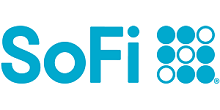 For getting your free credit scores and monitoring overall credit health, we recommend SoFi’s Financial Insights Tools. Other apps, including Credit Karma and Credit Sesame, are good. But SoFi has tools to help you track spending and strategize debt payoff that competitors don’t.
For getting your free credit scores and monitoring overall credit health, we recommend SoFi’s Financial Insights Tools. Other apps, including Credit Karma and Credit Sesame, are good. But SoFi has tools to help you track spending and strategize debt payoff that competitors don’t.
Overview: Best free credit reports and scores
- Best free credit score app: SoFi’s Financial Insights Tool
- Best free credit reports: AnnualCreditReport.com
- Best for credit monitoring: Credit Sesame
- Also great: Credit Karma
But even if you’re not about to open a credit line, it’s still a good idea to routinely monitor your personal credit information. Why? Well, you want to be on the lookout for fraud, but you also want to track your own creditworthiness so that you don’t overpay on interest rates when it does come time to borrow money.
SoFi’s Financial Insights Tools

SoFi is a free financial app providing credit score monitoring, account aggregation and budgeting, and tools to help you manage the repayment of your student loans and other debts.
SoFi gives you a complete picture of your finances and credit score. It’s accessible via web browser or the SoFi mobile app.
Activating credit score monitoring with SoFi and exploring SoFi’s financial insights tools is completely free. You do not need to be an existing SoFi member to enroll. After you sign up, you’ll have immediate access to your VantageScore 3.0 credit score, provided by the credit bureau TransUnion. Your score will automatically update each week so you can see how it changes over time and learn to manage your finances in a way that will gradually improve your credit.
» MORE: Read our review of SoFi’s Financial Insights Tools
AnnualCreditReport.com
AnnualCreditReport.com gives you direct access to credit reports (but not credit scores) from all three credit bureaus: Experian, Equifax and TransUnion. This service is mandated by federal law in the Fair Credit Reporting Act. You can access a free report from each of the three credit bureaus once per year.
You can download your free credit report by confirming your identity online through the sign-up page. You’ll be asked to provide your social security number and answer questions about your financial accounts and employment history to confirm your identity.
It’s important to note, however, that your credit score is not included when you access a credit report from AnnualCreditReport.com. That means you can only get your free credit report here. If you also want to check your credit score, you’ll have to consider other credit monitoring services or pay a fee to one of the bureaus.
Experian is currently the only bureau to offer free credit score monitoring. Equifax offers various credit score monitoring packages, starting at $9.95 per month, while TransUnion charges a monthly fee of $24.95 for credit monitoring services.
» MORE: Learn more at AnnualCreditReport.com
Credit Sesame
Credit Sesame promises that you can get your free credit report and credit score within 90 seconds of creating an account on their website.
You’ll get instant, totally free access to your TransUnion credit score and report, as well as:
- Free monthly updates to your TransUnion credit score and report.
- Daily monitoring and alerts of changes to your TransUnion credit report.
- Real-time fraud alerts in the event of suspicious activity
The basic Credit Sesame credit monitoring service will provide credit alerts anytime there is a change to your credit file. For example, if there is a new account reported, closed accounts, changes to your available credit, or new inquiries on your credit. Premium (paid) options are available from Credit Sesame for users who want to monitor activity on all three major credit bureaus.
Note that there are some things Credit Sesame can’t monitor, like changes to your bank account. If you’re the victim of identity theft, Credit Sesame can catch when the bad guys use your information based upon activity in your credit profile.
Credit Sesame also offers a variety of free tools to teach you how to improve your credit score.
» MORE: Read our full Credit Sesame review
Credit Karma
In addition to credit reports, Credit Karma offers financial products (ranging from personal loans to checking accounts). To access your free credit report and credit score, you just need to create an account and answer a few questions about your spending habits.
Credit Karma sources your credit score and credit report from Equifax and TransUnion. Your credit reports can be updated weekly and you can check your credit score as often as you like. Credit Karma also offers a free credit monitoring tool that allows you to catch any credit errors as they occur.
There is one catch, though: in exchange for free credit scores and reports, Credit Karma collects information about your spending habits to serve you targeted recommendations for credit cards, loans, and other financial products.
Your credit report vs your credit score
Your credit report is a detailed list of your credit accounts, debt balances, and payment history. You’ll want to ensure all the information is accurate and up-to-date by regularly checking your credit report.
Your credit score, on the other hand, is the number that lenders use to evaluate your creditworthiness and compare you to other borrowers. There are three major credit bureaus (Equifax, TransUnion, and Experian), which provide you with a credit score. It’s smart to regularly monitor your credit score to ensure it’s improving with time and so that you know where you stand.
Credit bureaus use the information on your credit report to generate your credit score using a proprietary formula. There are many different types of credit scores. Most free services use what’s called a VantageScore based upon your TransUnion report. This may differ from your FICO score and other popular credit score models.
Two bureaus may look at the exact same information on your credit report — for example, how many new accounts you have or your overall credit usage — and weigh them differently in calculating your score.
What to know about checking your credit history
While there’s no shortage of companies offering to pull your credit score for a fee, you shouldn’t have to pay for it at all.
For one thing, you’re legally entitled to one free copy of your credit report per year from each of the three bureaus. Before you check your score and report, here are a few things you should keep in mind:
Checking your own credit will not cause your credit score to drop. You may have heard of a “hard pull” versus a “soft pull” — these terms reflect whether a credit check will impact your score. For example, employers and insurance companies typically do a soft pull, which doesn’t affect your score, while lenders and credit card companies will do a hard pull, which does impact your score. Checking your own score is not considered a hard pull.
Your FICO score and credit bureau scores will differ. The bureaus provide what’s called a VantageScore, ranging from 501 to 990. However, that’s not actually what lenders use. They use what’s called a FICO score, ranging from 300 to 850. It’s confusing, yes, but don’t fret — your VantageScore will provide a reasonably accurate picture of your FICO score. For more info, check out our explainer on FICO scores.
Credit monitoring services will ask for personal information like your Social Security number (SSN) — they have to in order to verify your identity and pull your credit information.
Beware of credit monitoring sites that require a credit card number to check your report or score — they will probably charge your card monthly unless you cancel.
Free credit report FAQs
How can I get my full credit report for free?
AnnualCreditReport.com lets you get a free copy of your credit report from each nationwide credit reporting company: TransUnion, Equifax and Experian, once per year. Other sites that offer free credit reports deliver the information in potentially more user-friendly formats, but this is the best way to get your official credit reports.
What site has the most accurate credit score?
All free credit scores are “accurate” to the extent that they apply the same formula to your credit report as they do to somebody else’s. Consumers will get confused, however, when they see different scores. When financial institutions deny you credit, federal law requires them to give you reasons for that denial and the credit score used for your credit profile. Many consumers are surprised to find out the score looks completely different than the free scores they viewed previously. This isn’t because the free scores weren’t accurate; it’s that the credit scores provided were using a different score than the lender that denied credit.
What is the best site for free credit reports?
We recommend using SoFi for getting your free credit scores and getting free access to a variety of tools that can help you pay off debt and improve your personal finance.
When should I get my free reports?
It’s important to check your credit reports at least once a year to ensure there is no unauthorized activity or erroneous information on your report. Other times you should get a free credit report including:
- Before you apply for a credit card or loan
- Several months before you apply for a mortgage
- If you were recently denied credit
- If you suspect your social security number has been compromised
- If you receive a monthly statement from a loan or credit card you don’t recognize
The bottom line
It’s important to track your credit scores so that you know where you stand — and whether you need to work at improving your financial life. Having a higher credit score can benefit you in a myriad of ways, from getting a cell phone, granting you access to more premium credit cards, to getting cheaper insurance on your home or car, to scoring lower interest rates on bank loans for major purchases.
Fortunately, there are many free options to obtain your credit report and credit score, so you don’t have to stress about another expense.


